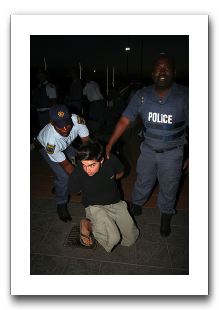Emergent Meanings of Privacy

There’s a really fascinating article in New York Magazine, “Say Everything:”
And after all, there is another way to look at this shift. Younger people, one could point out, are the only ones for whom it seems to have sunk in that the idea of a truly private life is already an illusion. Every street in New York has a surveillance camera. Each time you swipe your debit card at Duane Reade or use your MetroCard, that transaction is tracked. Your employer owns your e-mails. The NSA owns your phone calls. Your life is being lived in public whether you choose to acknowledge it or not.
Dan Kaminsky keeps telling me that, too. It’s worth reading the article. Virginia Postrel has some interesting commentary, “The Transparent Society and its clueless adult enemeies.” I think the most insightful comments come from Paul Saffo, in “Retroprobrium and mutually assured embarrassment:”
Several comments to my 2/17/02007 posting have noted that in a future transparent society, no one will make fun of their friends’ past postings because everyone will be in the same confessory boat. The problem with this argument is that we don’t judge behavior by the standards of the time when it occurred; rather, we consistently engage in retroactive opprobrium — retroprobrium — judging past actions by present standards.
To me, a key element of privacy is that the past is reasonably ephemeral: only the most important elements get remembered, and the cost of search is high. This is changing, and we don’t fully understand where we’re going.
The Canaidian government has recently obtained access to US conviction records, as reported in the San Francisco Chronicle, “Going to Canada? Check your past:”
Canadian attorney David Lesperance, an expert on customs and immigration, says he had a client who was involved in a fraternity prank 20 years ago. He was on a scavenger hunt, and the assignment was to steal something from a Piggly Wiggly supermarket. He got caught, paid a small fine and was ordered to sweep the police station parking lot.
He thought it was all forgotten. And it was, until he tried to cross the border.
…
“This,” [an attorney] says, “is just the edge of the wedge.” Who would have thought a single, crazy night in college would follow you around the world?
I certainly would never have thought so. If I had, I might write an article with a title like “Long Term Impact of Youthful Decisions.”
Photo: “How to tell you’ve had a good day,” by Andrew Murray.
[Edit: fixed broken html -Arthur]
The HTML is a bit off. I think the article being pointed to is
http://nymag.com/news/features/27341/index.html
[Adam adds: thanks, corrected!]